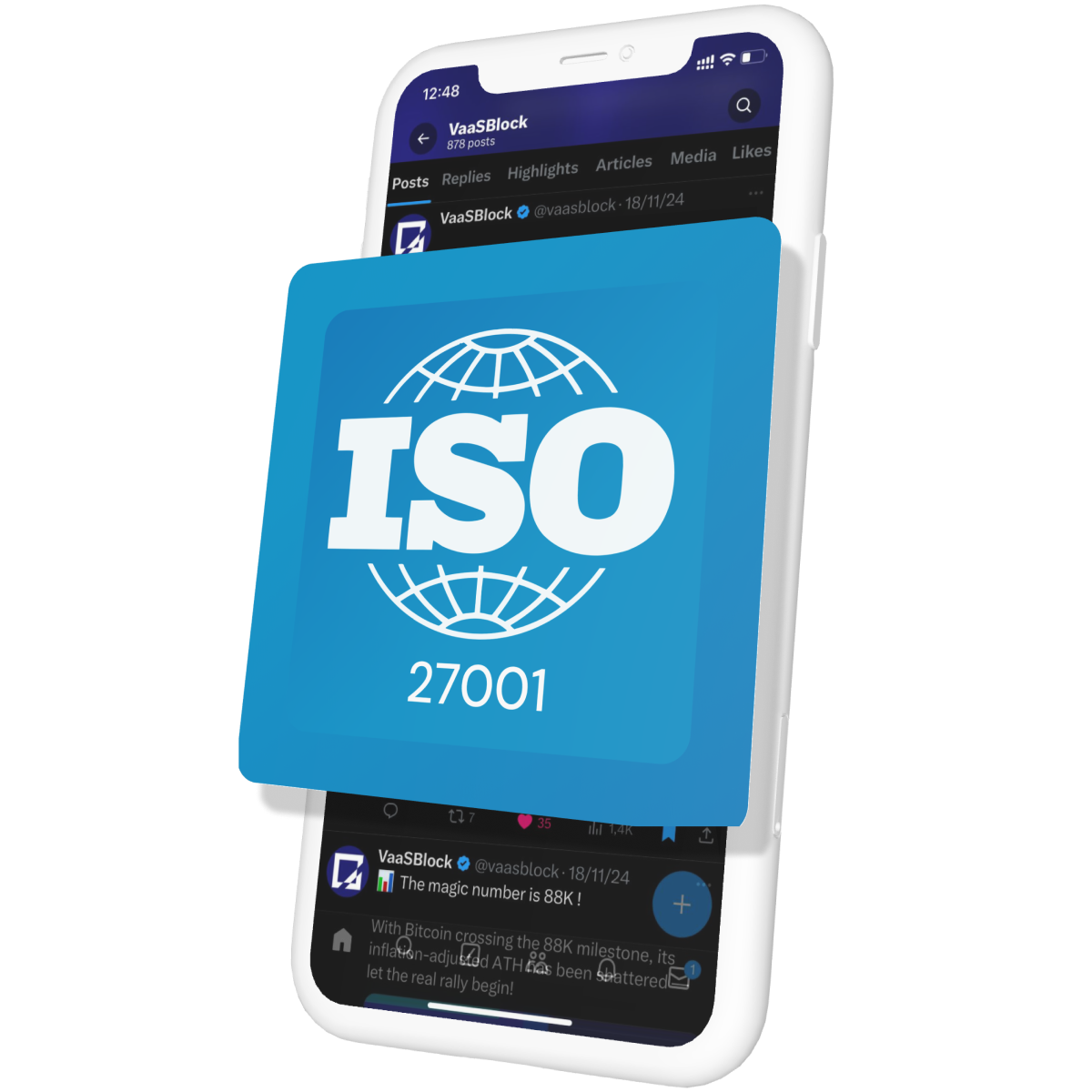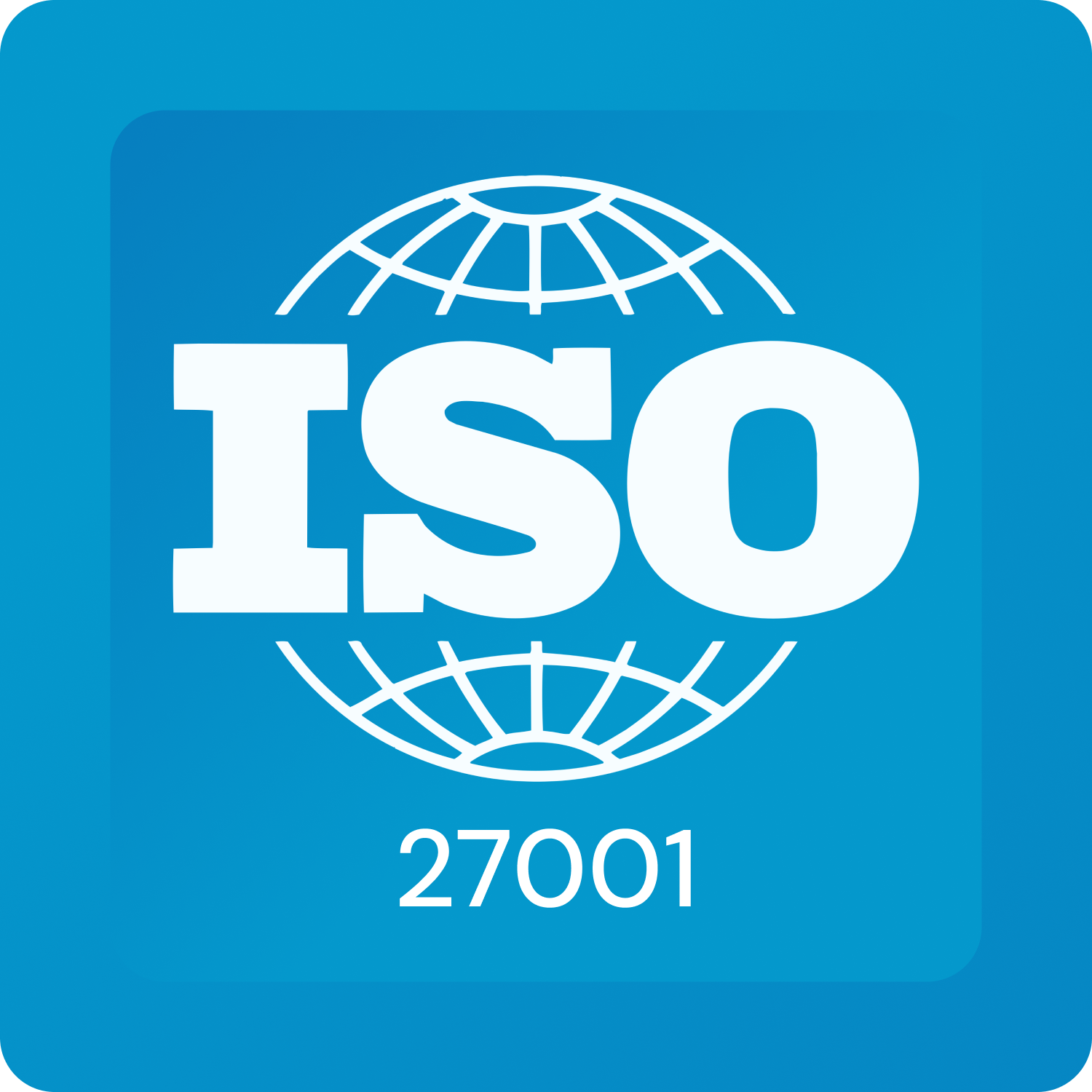
ISO 27001 — The global standard for information security
ISO 27001 defines a repeatable Information Security Management System (ISMS) that focuses on risk, people, processes and continual improvement. For founders, it’s a market signal: fewer procurement hurdles, faster partner approvals and firmer investor confidence.
VaaSBlock helps your organization align with the latest ISO 27001 standard, demonstrating strong security posture and earning the trust of customers, partners, and regulators in every market.
Risk-led, auditable and internationally recognised.
What ISO 27001 covers (in short)
- Scope & ISMS: Define what’s covered (services, systems, locations) and manage it with a documented ISMS.
- Controls & evidence: Annex A provides the control catalogue; we map controls to risk and evidence you can produce for auditors.
- Certification: Independent certification after Stage 1 & Stage 2 audits; annual surveillance keeps the certificate current.
Ready to move from proof-of-concept to enterprise-ready controls?
No contracts needed. No details disclosed.
1. Readiness & scope
We run a focused gap analysis and risk scoping session, define the scope you should certify, and deliver a prioritized remediation roadmap so effort targets the highest business value.
2. ISMS build & controls
We help you implement the ISMS—policies, risk registers, operational processes, monitoring and staff awareness—plus the evidence trails auditors expect.
3. Certification & surveillance
We manage the certifier engagement, coordinate Stage 1 and Stage 2 audits, and set up annual surveillance and continuous improvement so certification remains meaningful over time.
Typical timelines: many teams move from readiness to initial certification in roughly 6–12 months depending on scope and maturity.
Why founders choose ISO 27001?
Why do founders invest in ISO/SOC/RMA certifications?
It’s a credibility signal for on- and off-chain partners: exchanges, custodians, staking providers and VCs see independent controls as a reason to trust your ops, speeding integrations and deals.
Will certification help with exchanges, custodians and institutional partners?
Yes. It shortens procurement checks, reduces RFP back-and-forth and gives custody/exchange teams documented assurance about your key management, incident response and node operations.
What parts of a Web3 stack does certification cover?
Certification focuses on operational controls: key management & multisig, deployment/CI, node & validator operations, monitoring, incident response and third-party vendor controls (oracles, bridges).
Does ISO/SOC/RMA replace smart-contract audits or pen tests?
No, they’re complementary. Certifications prove operational maturity; smart-contract audits and pen tests prove code-level security. Both together give partners the full picture.
How long does certification take for a typical Web3 startup?
Depends on scope. Certifying core infra (custody, node ops, API) can be faster — many teams reach initial certification in ~6–12 months. Broader scopes take longer.
Is it worth it for token projects, DAOs or infra teams?
Yes. Certification helps with token listings, institutional integrations, custody approvals and enterprise partnerships — it turns “maybe” into “go” faster.
Learn more about ISO 27001
What is ISO 27001 in plain English?
ISO 27001 is an international standard for running an Information Security Management System (ISMS). It defines how you identify risk, apply controls, and continuously improve security across people, process and technology.
How long does the ISO certification take?
Small teams commonly reach initial certification in about 6–12 months, depending on scope and existing controls. Certification is a two-stage audit (Stage 1 readiness review, Stage 2 full audit), followed by annual surveillance audits.
How does ISO 27001 differ from SOC 2 or pen tests?
ISO 27001 is an ISMS standard focused on risk management and continual improvement. SOC 2 provides assurance over specific trust criteria and control operation. Pen tests and code audits assess technical vulnerabilities—these are complementary to ISO certification, not replacements.
Does ISO 27001 cover smart contracts or on-chain code?
ISO 27001 covers your operational controls and processes, not source-level code guarantees. Smart contract security reviews and audits remain important complementary activities alongside an ISMS.
Is it worth the cost for an early-stage Web3 company?
Many founders treat ISO 27001 as strategic infrastructure: it reduces procurement friction, strengthens enterprise sales prospects and shows investors you’ve institutionalised security. The value comes from faster deals and clearer risk narratives.
Ready to prove your information security to partners and stakeholders?


